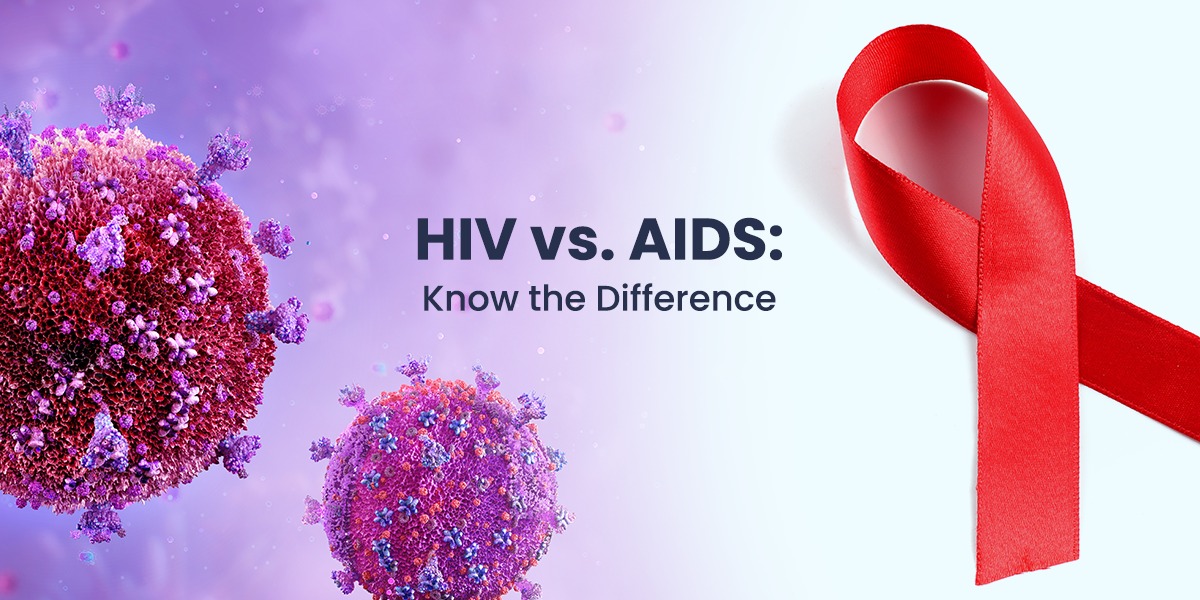
HIV or Human Immunodeficiency virus is the cause of Acquired Immune Deficiency Syndrome (AIDS) which is life-threatening. Through weakening one’s immune system and rendering the body ineffective against pathogen attack, one can develop severe symptoms of even a common cold and find it hard to combat it. This often leads to a fatal situation as the body’s immune T-cells are destroyed.
Sometimes you can have HIV but find no symptoms of it for a long time. Getting tested for the symptoms and consulting the best hospital in Kanpur and Lucknow can lead to prompt assessment and measures.
Often we are confused between HIV and AIDS what’s the difference between the two? Here is a general insight on AIDs symptoms, prevention of HIV AIDs and more.
Understanding HIV
HIV stands for Human Immunodeficiency Virus, a retrovirus which infects the cells and destroys the immune system rapidly. This makes it hard to fight off attacks from other pathogens, subsequently making one fall sick from even the most minor pathogen attack. Through severely weakening the immune system, HIV can finally lead to the state of AIDS.
Symptoms of HIV: Signs You Should Not Ignore
One can have HIV without any symptoms, hence, it is vital to get tested from time to time. Sometimes it can be as regular as getting common flu symptoms. Generally, HIV symptoms include:
- Chills
- Fatigue all the time
- Fever
- Sore throat
- Muscle aches
- Sudden night sweats
- Mouth sore
- Rashes
- Swollen lymph nodes
What is AIDS?
AIDS is the ultimate and serious stage after the attack of HIV. People who are suffering from AIDS have a very low count of white blood cells. This leads to a severely damaged immune system as well as additional symptoms of illness which can finally lead to death.
When unnoticed and left without treatment, HIV can progress to AIDs in about 10 years.
Difference Between HIV and AIDS: What sets them apart
The difference between HIV and AIDs is something that creates confusion. Both weaken the immune system but in the case of the former, HIV can have milder symptoms like cold, chill, fever and repeated attack by pathogens while AIDs is fatal and the ultimate state of HIV attack. Hence it is not possible to get AIDS without getting infected by HIV.
Treatment nowadays has slowed down the process of developing AIDS and lessened the effect of HIV attacks. Thus, not everyone will develop AIDs. Through effective treatment, it is possible to delay the fatal effects of AIDs however, when no treatment or prognosis is done, individuals with HIV will soon progress to AIDs.
Prevention Of HIV And AIDS: Treatment And Measures
The most suitable way to avert HIV is to be aware of the symptoms and how AIDS can spread. Protect yourself from certain activities like injecting through infected and used syringes. Sharing needles or unprotected sex are major causes of HIV spread.
Here are some ways you can reduce the risk of HIV spread and ensure prevention of HIV and AIDs:
- Never share needles while injecting drugs.
- Using latex condoms for protection.
- Getting treated and tested for STIs from time to time.
- Speaking to healthcare professionals when falling sick frequently.
- If you assume that you have been exposed to HIV then speak to an expert and seek the PEP test or post-exposure prophylaxis.
Certain medications can prevent the spread of HIV and tests that can aid in early detection. These include PrEP (pre-exposure prophylaxis) and PEP (Post-exposure prophylaxis). Let’s understand them in detail:
Pre-exposure Prophylaxis
PrEP is a medication comprising pills that are taken if you do not have HIV but under a great risk of contracting AIDS. Often when you have a partner with HIV or end up using the same needle for injection, PrEP can be highly effective.
Post Exposure Prophylaxis
PEP comprises HIV medications and pills when one has been already exposed to HIV. When you are not aware that you have been exposed to HIV, PEP is often taken as a precautionary measure. PEP is offered 72 hours from the time of exposure and taken for 28 days from the date of commencement. PEP is meant for emergency use and must be taken along with other prevention measures.
Conclusion
Treatment and diagnosis for AIDs and HIV have come a long way due to medical advancements. If diagnosed early, one can avert the risk of fatality or delay it to a certain extent. Prompt healthcare assistance can make the diagnosis faster and more effective.
You may also read: Innovations in HIV Testing: From Home Kits to Rapid Results

 Call-an-Ambulance
Call-an-Ambulance



